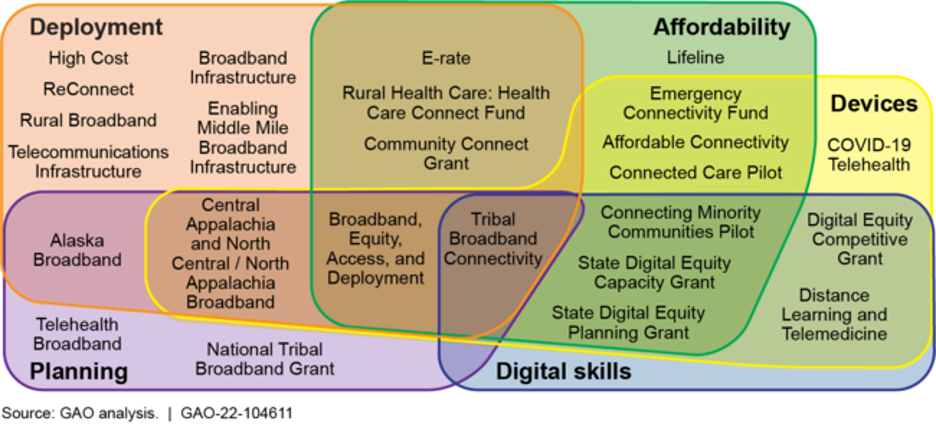Bell Campaign Targets Federal Wholesale Fibre Policy Changes

Table of Contents
Bell's Arguments for Policy Changes
Bell's campaign centers on two core arguments: the need to level the playing field and the necessity of incentivizing further investment in fibre optic networks.
Addressing the "Lack of Level Playing Field"
Bell contends that current regulations create an uneven playing field, hindering its fibre optic network expansion and stifling fair competition. They argue that these regulations unfairly advantage competitors.
- Lack of access to essential infrastructure: Bell claims limited access to crucial infrastructure owned by other companies, slowing down their deployment capabilities.
- Regulatory hurdles slowing deployment: The company cites complex and time-consuming permitting processes and regulatory approvals as major obstacles.
- Claims of unfair advantage for competitors: Bell alleges that competitors benefit from regulations that don't impose the same burdens, giving them an unfair competitive edge in the market.
Specifically, Bell points to the CRTC's (Canadian Radio-television and Telecommunications Commission) regulations regarding access to existing infrastructure. They argue that these regulations are outdated and don't adequately reflect the current realities of the fibre optic market, creating unnecessary barriers to entry and expansion. The perceived impact is a slower rollout of fibre optic networks in underserved areas.
Incentivizing Investment in Fibre Infrastructure
Bell argues that significant changes are needed to attract greater investment in Canada's fibre optic network. They claim current returns on investment are insufficient to justify the massive capital expenditure required for widespread fibre deployment.
- Higher returns on investment needed: Bell emphasizes the need for higher returns to incentivize the billions of dollars in investment needed to expand their fibre network across the country.
- Reducing regulatory burdens: Streamlining permitting processes and simplifying regulations are crucial for attracting further investment, Bell argues.
- Streamlining permitting processes: Reducing bureaucratic hurdles and red tape would significantly speed up the deployment of fibre optic infrastructure, according to Bell.
The financial implications are substantial. Bell projects that under the current regulatory framework, the ROI for fibre network expansion is too low. They believe changes to the wholesale fibre access policies could significantly improve the projected ROI, leading to more aggressive investment and faster deployment.
Potential Impacts of Policy Changes
The proposed policy changes, if enacted, could have significant consequences for both competitors and consumers.
Impact on Competition
Bell's proposed changes could dramatically shift the competitive landscape of the Canadian telecommunications market.
- Increased market share for Bell: Success in influencing policy could significantly increase Bell's market share, potentially leading to market dominance.
- Potential reduction in competition: Smaller internet service providers (ISPs) reliant on wholesale access to Bell's infrastructure could face severe challenges, potentially leading to market consolidation and reduced competition.
- Impact on smaller internet service providers (ISPs): Smaller ISPs may struggle to compete if Bell gains preferential access to infrastructure or favorable regulatory treatment.
Competitors like Telus and Rogers, along with smaller independent ISPs, are closely watching Bell's campaign. Their responses will likely involve lobbying efforts to counter Bell's proposals and preserve a competitive market.
Impact on Consumers
The impact on consumers is complex and potentially far-reaching.
- Potential price changes: Depending on the outcome, consumers could see price increases or decreases for internet services. Increased competition could lead to lower prices, while reduced competition might lead to higher prices.
- Improved internet speeds in some areas: Increased investment in fibre optic infrastructure could lead to improved internet speeds, particularly in areas currently underserved.
- Potential for reduced choice: Reduced competition could lead to fewer choices for consumers in terms of internet service providers and plans.
Affordability and accessibility are key concerns. While faster internet speeds are desirable, increased prices could negate these benefits for many consumers. The balance between competition and affordability will be a crucial element in evaluating the long-term impact on consumers.
Reactions and Counterarguments
Bell's campaign has generated considerable reaction from other stakeholders, including competitors and consumer advocacy groups.
Industry Responses
The telecommunications industry is sharply divided on Bell's proposals.
- Statements from competitors: Competitors like Telus and Rogers have voiced concerns about the potential for reduced competition and market dominance by Bell.
- Industry associations' positions: Industry associations are divided, with some supporting elements of Bell's proposals and others expressing strong opposition.
- Potential legal challenges: Legal challenges are a possibility, particularly if the proposed changes are seen as anti-competitive.
The responses highlight the intense lobbying efforts and behind-the-scenes battles taking place as the industry grapples with the implications of Bell's campaign.
Consumer Advocacy Groups' Concerns
Consumer advocacy groups have expressed significant concerns about the potential negative impacts on consumers.
- Concerns about monopolies: The prospect of increased market power for Bell raises concerns about the potential for monopolistic practices.
- Affordability issues: Concerns exist about potential price increases and reduced affordability of internet access for many Canadians.
- Potential for reduced consumer choice: Advocates worry about the potential for a less competitive market, leading to fewer choices for consumers.
Organizations like the Public Interest Advocacy Centre (PIAC) are actively monitoring the situation and advocating for policies that protect consumer interests. Their voices are crucial in ensuring that any changes to federal wholesale fibre policy prioritize consumer welfare.
Conclusion
Bell's aggressive campaign to reshape federal wholesale fibre policy is a pivotal moment for the Canadian telecommunications industry. The company's arguments about leveling the playing field and incentivizing investment are countered by concerns about reduced competition, potential price increases, and diminished consumer choice. The reactions from competitors, industry associations, and consumer advocacy groups illustrate the complexities and high stakes involved. The ongoing debate underscores the need for careful consideration of the long-term consequences.
Call to Action: The future of wholesale fibre access and broadband infrastructure in Canada hangs in the balance. Stay informed about these critical developments, and contact your Member of Parliament to voice your concerns regarding the future of federal wholesale fibre policy changes. Your participation is vital in shaping a telecommunications landscape that serves the best interests of all Canadians.

Featured Posts
-
 Eramet A 48 5 E Prochaine Baisse Vers 45 8 E
May 14, 2025
Eramet A 48 5 E Prochaine Baisse Vers 45 8 E
May 14, 2025 -
 Baisse Des Benefices Eramet Analyse Des Perspectives 2024
May 14, 2025
Baisse Des Benefices Eramet Analyse Des Perspectives 2024
May 14, 2025 -
 Roger Federers Le Mans Honorary Starter Role A Historic Moment
May 14, 2025
Roger Federers Le Mans Honorary Starter Role A Historic Moment
May 14, 2025 -
 Sinner Vs Federer A Deep Dive Into The Power Of Tennis Branding
May 14, 2025
Sinner Vs Federer A Deep Dive Into The Power Of Tennis Branding
May 14, 2025 -
 New Lindt Chocolate Shop A Central London Treat
May 14, 2025
New Lindt Chocolate Shop A Central London Treat
May 14, 2025
